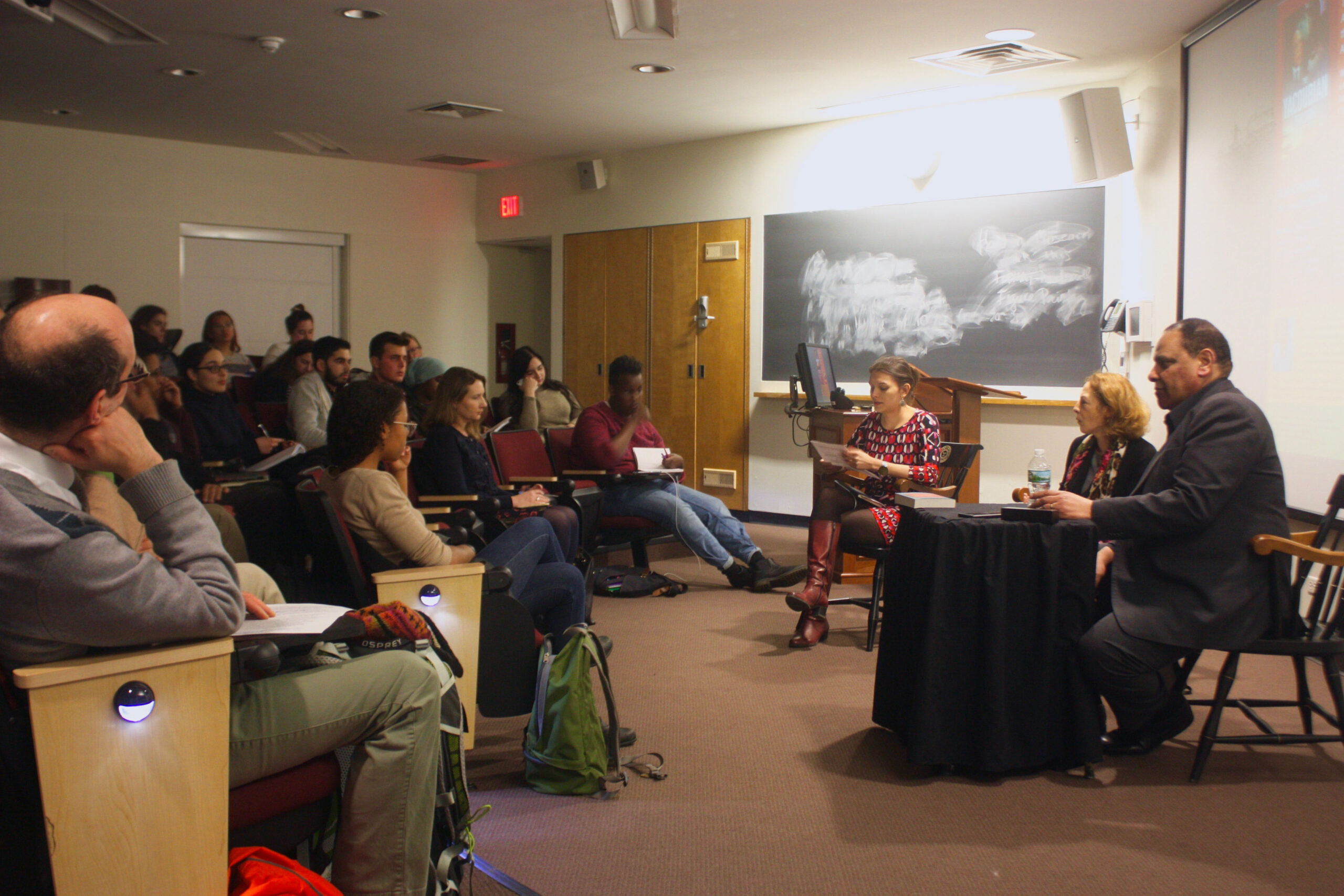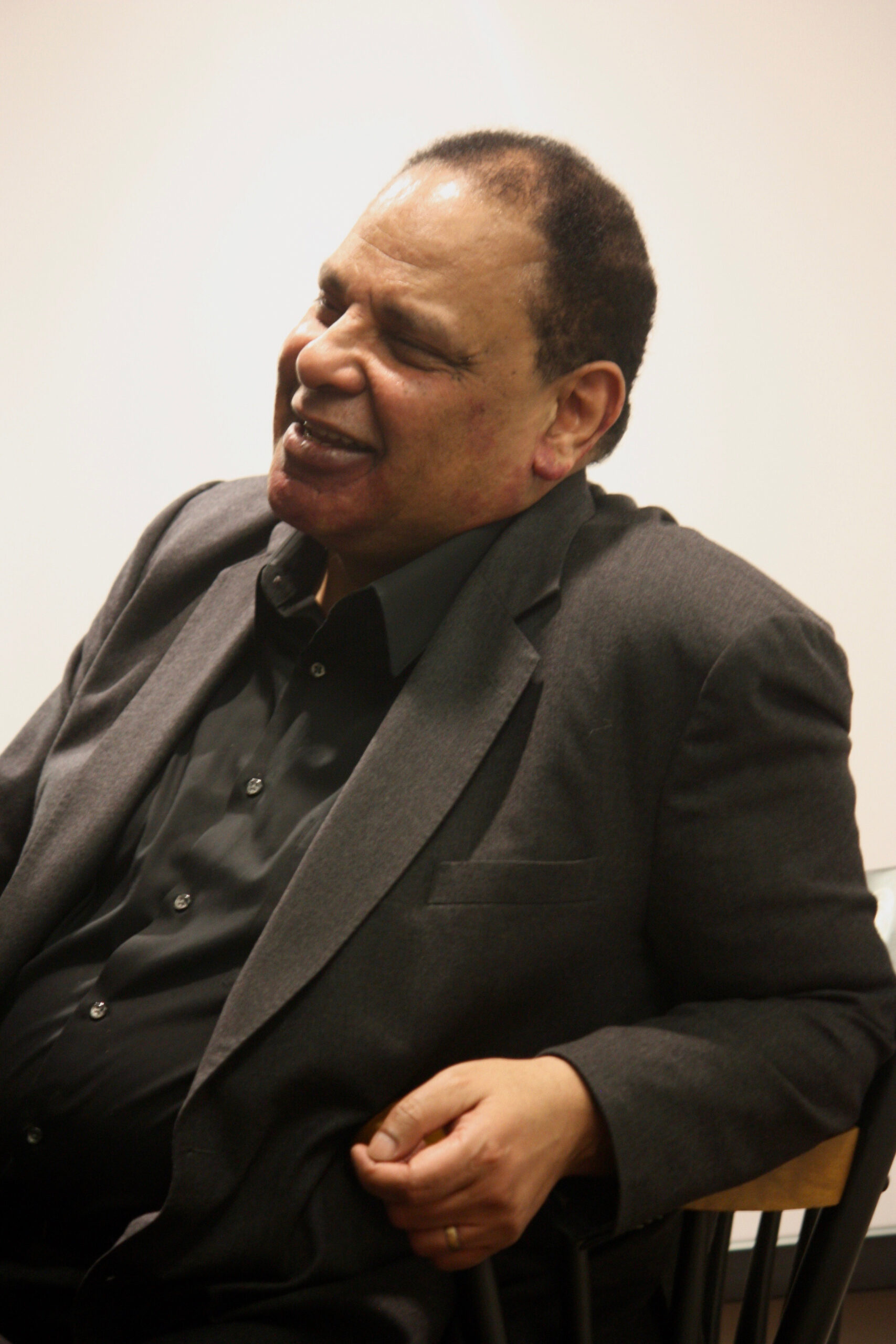Creating change through ‘Power of Literature’
April 5, 2019
 Lauren Caffe
Lauren CaffeAs contemporary interests drift away from physical books in favor of online media, people are beginning to doubt the power of literature. Yet, Wednesday night in the Beam Classroom, Dr. Alaa Al Aswany, world-renowned author and Egyptian reformer, reclaimed the agency of the written word in his lecture titled “Power of Literature.”
Currently a visiting professor in Middle Eastern studies at Dartmouth College, Al Aswany is best known for his 2002 work, “The Yacoubian Building,” which offers a poignant dissection of modern Egyptian society under the facade of fiction. The novel is an Arabic bestseller, translated into 23 languages and adapted into a movie, a TV series and a play. Al Aswany’s visit was supported by the George M., Massoud Y. and Saada J. Barakat Memorial Fund, as well as sponsored by the Departments of Religion, Sociology and Anthropology, History, Art History and the Africana Studies Program.
Literature has immense power in the eyes of Al Aswany, a second-generation writer. This power is inspired by the work of his father, who first taught him how to write fiction and the secret to making it relatable to an audience.
“I use to say that there were four of us, my father, my mother, myself and literature,” Al Aswany said.
Al Aswany defines literature as “a life on the papers that is similar to our daily life but more profound, more significant and more beautiful.”
This definition stems from his own career path in the literary world. He was a full-time licensed dentist who used this career to finance his pursuit of writing. He also used his dentistry to formulate characters from a mixture of patients. His societal status as a dentist offered some protection from trouble.
While writing “The Yacoubian Building,” he visited impoverished areas of Cairo and observed them to capture a real sense of the city. He even ventured into illegal bars and when the police came, he was able to stay out of trouble by revealing his identity as a dentist. Al Aswany incorporated these interactions and observations into his novel, making the book relatable to the everyday people of Cairo.
Al Aswany’s critical portrayal of government corruption and social issues proved hugely influential. The book’s treatment of homosexuality was especially taboo-breaking for contemporary mainstream Arab literature. “The Yacoubian Building” enjoyed overwhelming support and popularity among Egyptian readers.
Al Aswany is aware of the global platform that came with his success. He wrote weekly articles for various news outlets, many of which centered around politics and literary critique, and held a weekly literature salon in Cairo, which was influential in engaging Egypt’s literary and intellectual community in the 2011 Egyptian Revolution.
With the transgressive nature of his work and the unrelenting realism in his writing, Al Aswany came face to face with the current regime’s crackdown on literature and public knowledge.
“I am currently being called a spy for the CIA, Morocco and other countries,” he said.
Al Aswany says that he is also being sued in military court by the government for defamation and several other crimes, but he refuses to appear, knowing he would not receive a fair trial.
The power of literature has allowed Al Aswany to not only reform the government, but also the people. He believes that readers will heed his messages and take action after they see the world as depicted in his writing. To achieve this effect, he does not create characters who simply represent his opinions, but rather those who are in opposition to his beliefs in order to call attention to a need for change.
“Literature will never change the government, but literature will change the people,” he said.
Comments
Before submitting a comment, please review our comment policy. Some key points from the policy:
- No hate speech, profanity, disrespectful or threatening comments.
- No personal attacks on reporters.
- Comments must be under 200 words.
- You are strongly encouraged to use a real name or identifier ("Class of '92").
- Any comments made with an email address that does not belong to you will get removed.


Thank you.
On what basis do you state that ‘interests drift away from physical books in favor of online media’? A quick look at the sales of print and digital books would correct the misapprehension about. I am amazed that for 30 years some people have continued to predict the decline of printed books in the face of all evidence.
The ‘written word’ is still written, whether it is in print or digital form.
Very contradictory statements: ‘The power of literature has allowed Al Aswany to not only reform the government’, v. ‘Literature will never change the government.’ The latter is of course more likely.